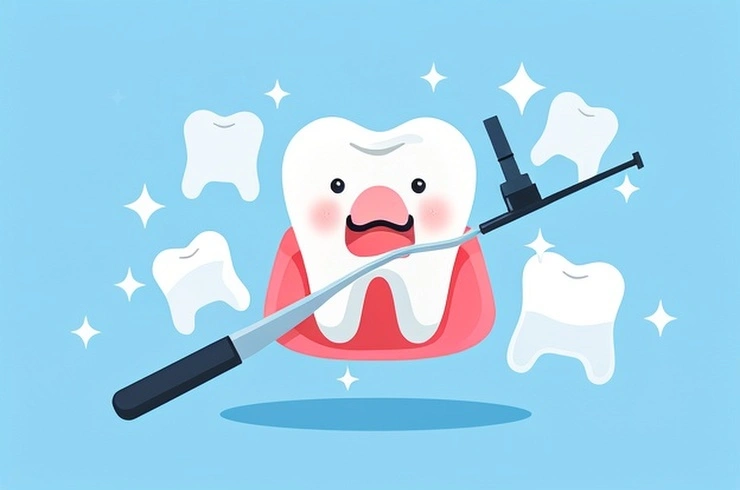
When you hear "wisdom teeth," the first thought that often follows is "removal." While it's true that many people have their wisdom teeth extracted, it's not always a necessary step. Healthy wisdom teeth, which are the four permanent teeth located at the very back of your mouth (two on top, two on bottom), can actually aid in chewing. They typically emerge between the ages of 17 and 23, hence their name, signifying a more "mature" age.
However, issues can arise. One common problem is pericoronitis, an infection that occurs when a wisdom tooth doesn't fully erupt. This happens because there isn't enough space for the tooth to come in, causing the surrounding gum tissue to form a flap over the partially emerged tooth. Food particles can then become trapped under this flap, leading to an infection in the gum.
Symptoms of pericoronitis include:
Painful or swollen gum tissue around the wisdom tooth
A foul smell or taste in your mouth
Fever or frequent chills
Swollen lymph nodes
Spasms in the jaw muscles
If you experience any of these symptoms, it's crucial to contact your dentist immediately.
Treatment for pericoronitis involves a professional assessment by your dentist to determine the severity of the infection. They will clean the area around and under the gum. Depending on the situation, your dentist will recommend either a diligent oral care regimen or, in more severe cases, an extraction. It's vital to address pericoronitis promptly, as studies, such as a review in the International Journal of Dental and Medical Research (IJDMR), indicate that if left untreated, it can lead to life-threatening complications.
Beyond infections, impacted wisdom teeth are another common cause of pain. This occurs when wisdom teeth grow in at an incorrect angle, pushing against another tooth or the back of the mouth, or when they only partially emerge due to insufficient space. Surgical removal is frequently necessary for impacted wisdom teeth.
Ultimately, the best way to care for your wisdom teeth is to follow your dentist's advice. If they recommend extraction due to infection or impaction, it's in your best interest to proceed. If your dentist determines that your wisdom teeth don't need to be removed, maintain a rigorous oral hygiene routine that includes brushing and cleaning between your teeth at least twice a day.
In summary, wisdom teeth don't automatically require extraction. If they emerge straight and have ample room, they can be a beneficial part of your oral anatomy. However, if they become infected or impacted, removal is often the necessary course of action. Regular dental checkups and professional cleanings are key to ensuring your oral health.
Pro Tip
The content of the article is shared by netizens, please carefully identify it